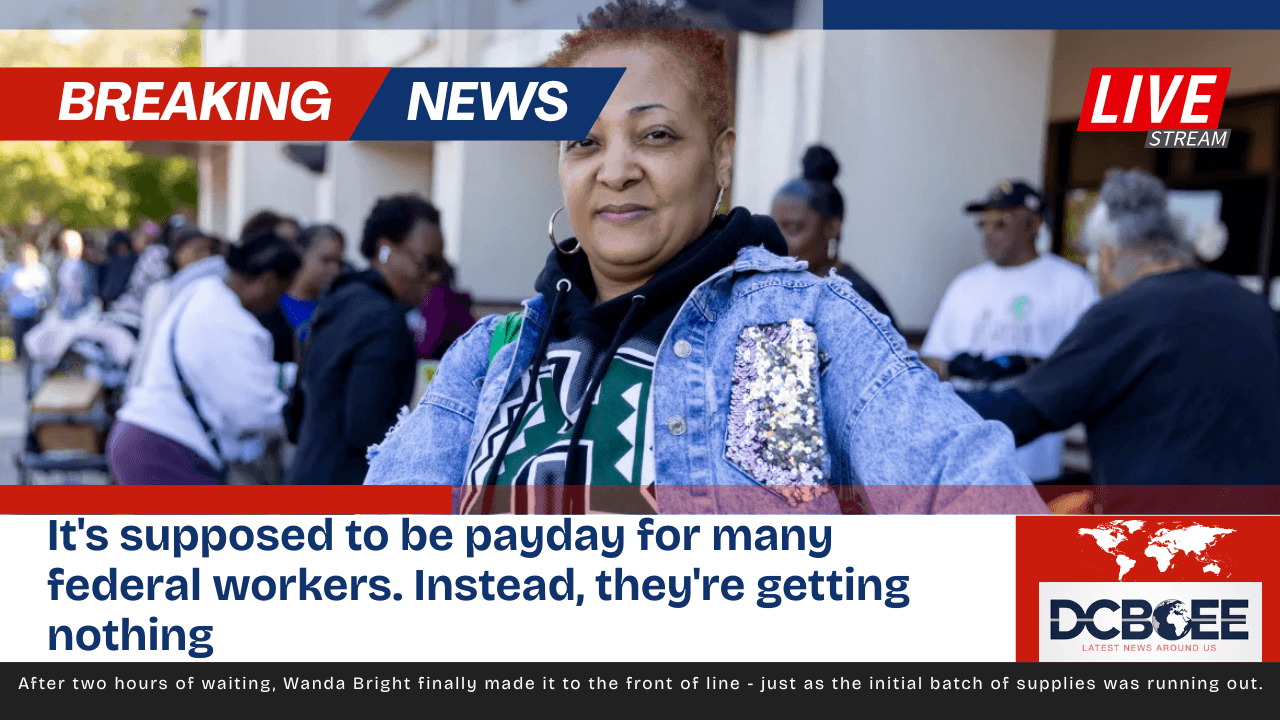
It's supposed to be payday for many federal workers. Instead, they're getting nothing
It was a shocking sight in Prince George’s County (Md. ), home to over 60,000 federal employees: professionals of middle class lined up to buy boxes of pasta, proteins and produce for their families.
After two hours of waiting, Wanda Bright finally made it to the front of line – just as the initial batch of supplies was running out.
Capital Area Food Bank began the day with 300 boxes. This was enough to provide 150 government employees with two boxes each. The need turned out to be even greater.
The second truck was backed up into the parking lot of the shopping centre. Fortunately, reinforcements were called and cheers broke out. Bright was relieved as volunteers gave her bread and other supplies to get her family by the end of the week.
Bright is one of the estimated 700,000 furloughed federal workers in the U.S., which means they are currently not working. Some people can deal with this. “A lot of people can’t.”
Friday was supposed to be payday for many federal employees. They get nothing instead. No partial pay. has not indicated when they might receive their next paycheck.
The Trump administration has also managed to move funds around so that certain people are paid, especially those who do work considered critical to President Trump’s priorities.
We got the people we wanted paid, paid, okay? Trump said this at the White House in the last week.
Unpaid wages of 1.4 million workers
According to the Bipartisan Center in Washington D.C., approximately 1.4 million federal civilian employees are working without pay across the nation. Roughly one-half of the federal employees are furloughed. The other half is still working because they are deemed necessary.
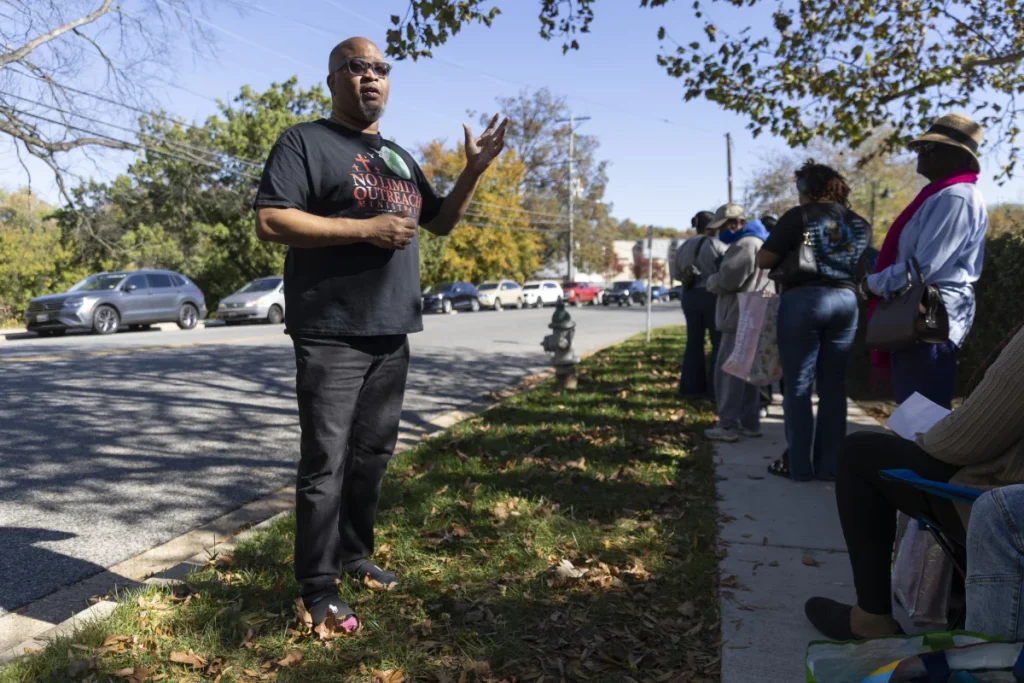
The lack of congressional funding has caused financial stress for many in both groups in an already difficult year.
Jay, a furloughed employee from the National Institutes of Health says, “This entire fiscal year — 2025 — was a time of worry about my job. I worried about being RIF’d.” He is referring to reductions of force or layoffs that have already affected a number of agencies. It was emotionally and physically draining. “Now the reality sets in when you don’t get checks and need to provide for family.”
Jay, who requested to only be identified as Jay out of fear that he would lose his job, pushed his two boxes from the food distribution location in a stroller. He has two children waiting for him back at home: a one-year-old, and a five-year-old.
Tierra Carter, a Tampa, Fla. native, is a local celebrity. Still going to Work Answering calls to the Social Security Administration 1-800 number. Carter, a union rep with the American Federation of Government Employees (AFGE), says that the lack of a pay check has forced her into taking out loans and requesting a hardship withdrawal of her 401(k).
She says, “I feel like I am in a swimming pool, trying to reach the top but I keep getting knocked down every time I reach the middle.”
Offer to help pay bills
Pew Research Center analyzed government data from March 2024 and found that 43% of federal employees earn less than $90,000 a year. Even those who earn more can see their bills quickly pile up.
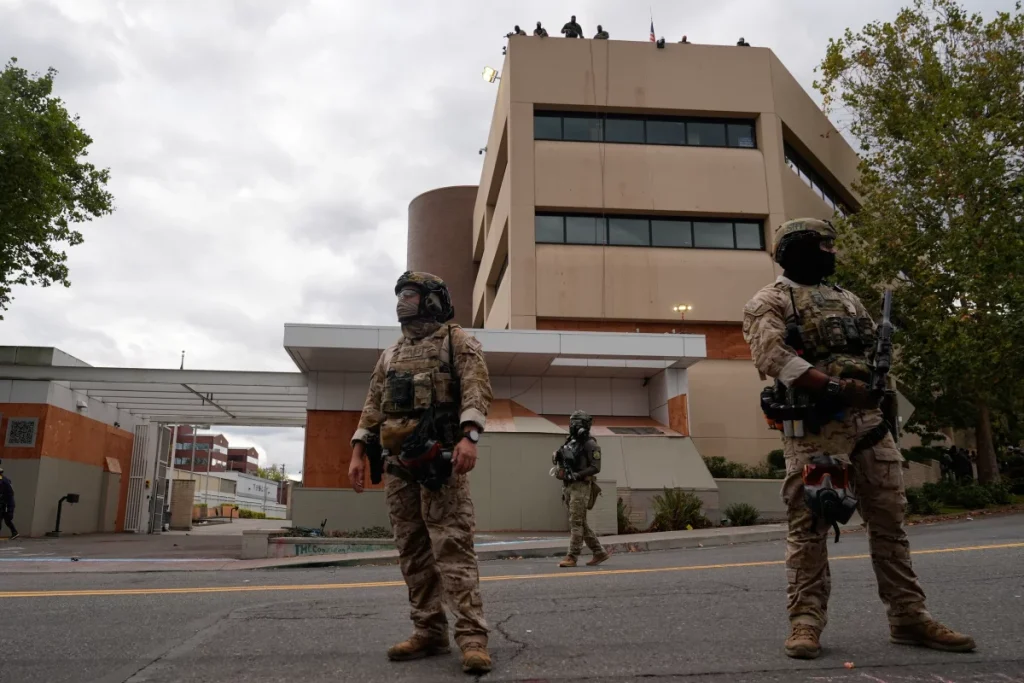
Credit unions, where federal employees do their banking, are providing some financial assistance. Veridian Credit Union, based in Iowa, had approved over $55,000 of “Government Advance Loans”, short-term loans with no interest, for 32 members who were affected by the government shutdown. The credit union had also processed 80 “Delay-aPays” at no cost to members. Westerra Credit Union, based in Denver, and Redwood Credit Union, located in Northern California, have both provided members with nearly $100,000 of short-term loans that are interest-free.
Since February, the Federal Worker Solidarity Fund of the Metropolitan Washington Council, AFL-CIO, provides emergency financial assistance to Washington, D.C., Maryland, and Virginia. Sig Meilus is the director of the organization. He says that in recent weeks, there has been a surge in requests for assistance with rent, utility bills, groceries and mortgage payments.
Meilus was awoken by 20 new requests for assistance in her email on Thursday morning. She expects that the trend will continue, as there is no end in sight to the shutdown.
She says, “Which means, unfortunately, that our funds are shrinking quickly.”
Shutdown impacts communities
The shutdown is not as obvious to many Americans because two-thirds or more of the civilian federal employees are still working, despite the lack of annual funding.
Shai Akabas is vice president for economic policy at Bipartisan Policy Centre.
Akabas explains that there are already some examples of a grocery store that is less busy next to a federal office or a daycare that has fewer kids because their parents have been furloughed. In the long run, communities with higher density of federal workers may see less overall spending.
Akabas says, “Not everyone feels it yet but it is actually affecting the wider economy.”
Trump said recently that furloughed employees shouldn’t rely on the law passed by Congress in 2019. The law ensures back pay to federal workers after a shutdown is over.
Trump told reporters after a week of the shutdown, “We will see.” We’re going make sure that most of them get their back pay. Some of them have been hurt by the Democrats, and therefore will not qualify.
Trump Administration finds ways to pay federal workers
Many federal employees continue to be paid during the shutdown. Some federal employees’ salaries, such as the vast majority of the Department of Veterans Affairs workers, are not paid from the appropriations approved by Congress every year.
In an Interview on Charlie Kirk Show, Russell Vought described the Trump administration’s recent budgetary maneuvers as “budgetary twirler”.
Last week, active-duty military personnel received their pay on time after the Defense Department used unutilized research and development funds.
Around 70,000 law officers at the Department of Homeland Security will also be paid out of funds that were allocated to the Department in Trump’s tax and spending bill from last summer. Many of their colleagues, however, are still not paid and will likely be until the shutdown ends. This creates an unfair playing field for federal employees.
Source:https://www.npr.org/2025/10/24/nx-s1-5581505/government-shutdown-federal-employees-paycheck
See Also: Trump to meet with China’s Xi next Thursday, will hold a bilateral meeting


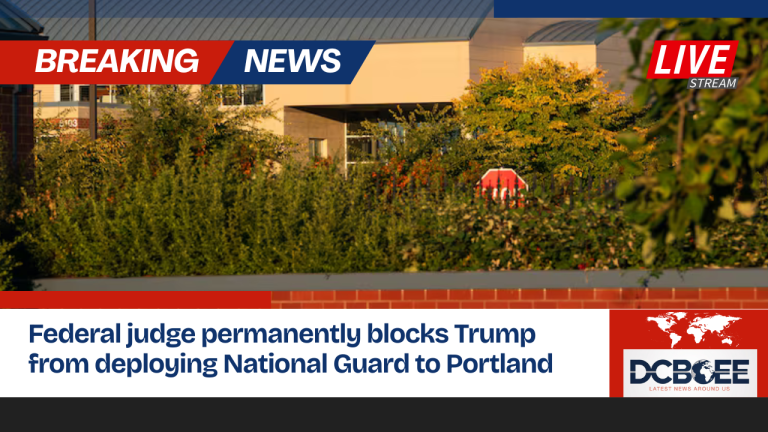
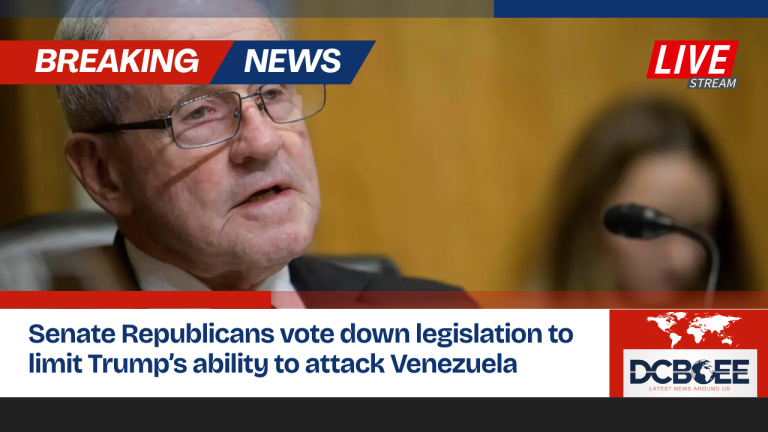


![My biggest AirPods Pro 3 problem has improved, how about you? [Poll]](https://dcboee.us/wp-content/uploads/2025/11/President-Faces-Impeachment-Nation-Braces-for-Political-Turmoil-67-768x432.png)
